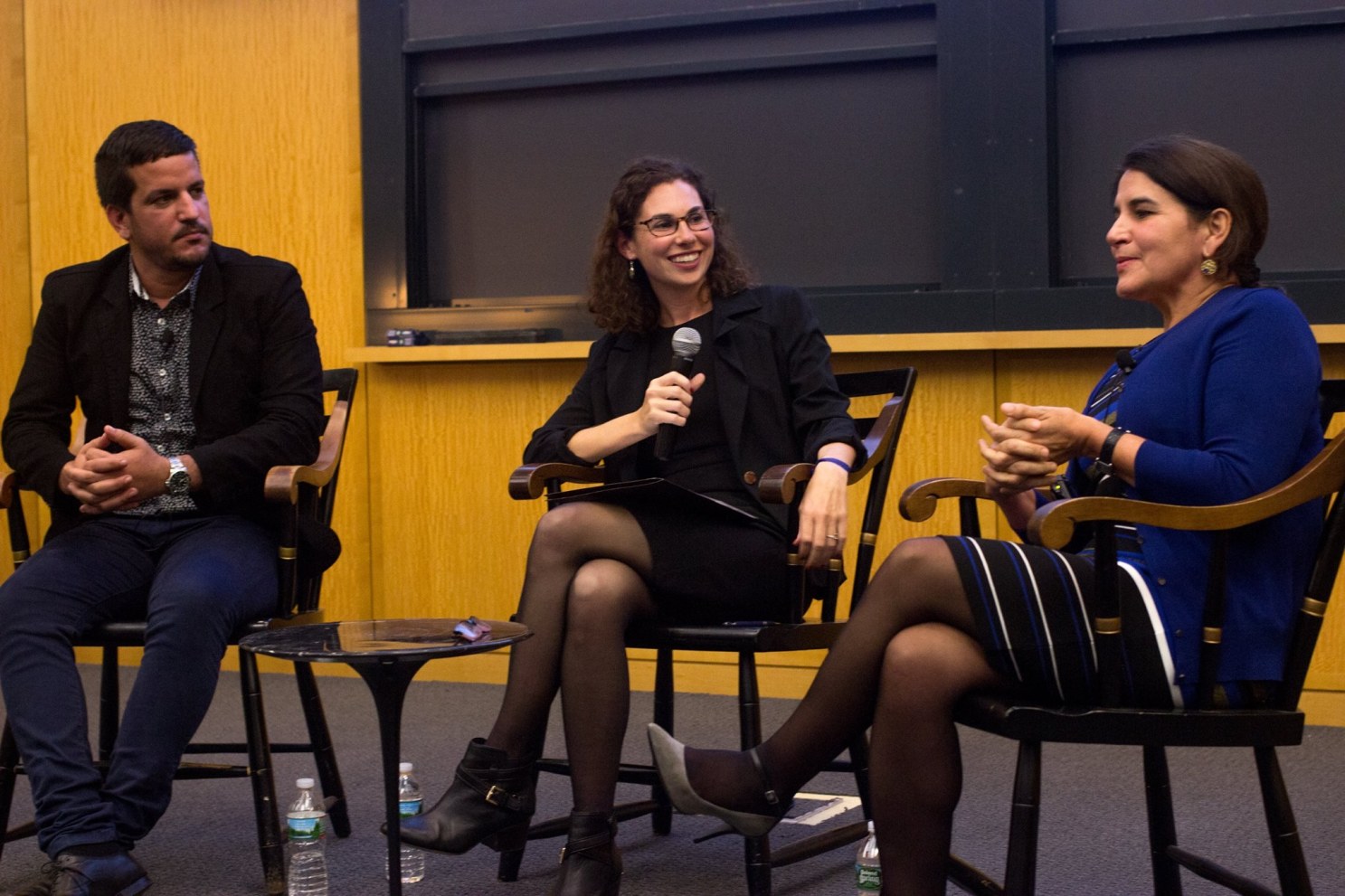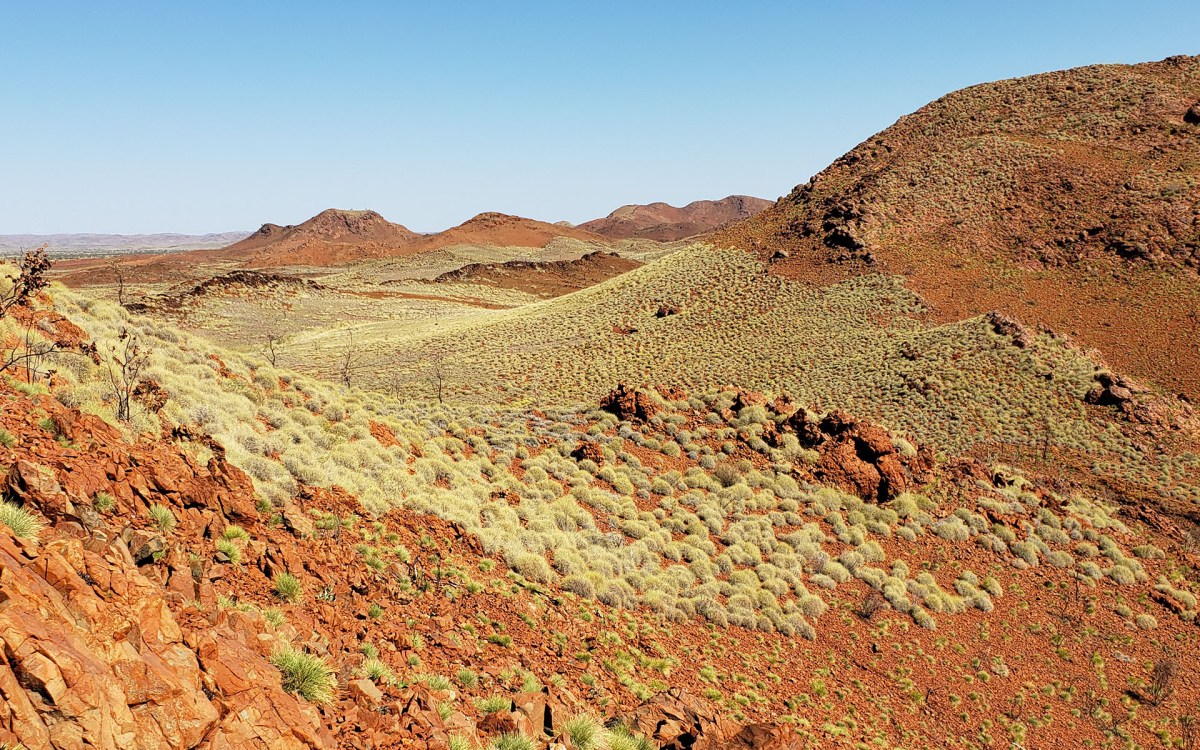The Harvard Cubans premiere shares untold story of U.S.-Cuba relations with Harvard twist

Erin Goodman (center) moderates the discussion between director Danny González Lucena and historian Marial Iglesias Utset. Photo by Julia Grace Cohn.
The David Rockefeller Center for Latin American Studies (DRCLAS) hosted the world premiere of the documentary “Los Cubanos de Harvard” (The Harvard Cubans) last Monday, Oct. 23, during the inaugural Worldwide Week at Harvard (Oct. 22–28, 2017). The 72-minute film was directed by Cuban journalist Danny González Lucena and produced by the Cuba Studies Program at DRCLAS. “The Harvard Cubans” tells the story of a group of nearly 1,300 Cuban schoolteachers who attended Harvard Summer School in 1900, an expedition that is considered to be the most significant instance of people-to-people exchange between Cuba and the United States to date.
The evening began with an introduction to the film by Jorge I. Domínguez, Antonio Madero Professor for the Study of Mexico and Co-Chair of the Cuba Studies Program at DRCLAS. Domínguez is interviewed extensively in the documentary, as is his Co-Chair of the Cuba Studies Program, Alejandro de la Fuente, Robert Woods Bliss Professor of Latin American History and Economics. Other key figures interviewed in the documentary include Cuban historian Dr. Marial Iglesias Utset, and the Cuban poet and essayist Victor Fowler, who co-wrote the script for the documentary with González Lucena and was a visiting scholar at Harvard in 2015–16. Following the screening, DRCLAS Associate Director Erin Goodman, moderated a lively discussion between González Lucena and Iglesias Utset, who is currently a Visiting Research Scholar at the Afro-Latin American Research Institute at the Hutchins Center at Harvard.
The film project is inextricably linked to Harvard history, and many individuals across the university participated in the production. As González Lucena expressed in the Q&A, “The Harvard Cubans” greatly benefited from the involvement of Harvard faculty members and administrators, as well as bibliographic assistance from Iglesias Utset and Lynn Shirey, Librarian for Latin America, Spain and Portugal.
The 1,273 Cuban teachers who participated in the expedition hailed from all over the island and comprised half of all public school teachers in the country. The primary sources on the expedition, as analyzed in the documentary, reflect a substantial positive impact on both individual teachers who spent their summer at Harvard and the schools, school systems, and communities to which they returned.”The Harvard Cubans”, however, argues that the impact of the expedition did not end with these teachers and the communities they served; rather, surprising revelations from González Lucena’s research for the documentary include implications for attitudes towards race, gender, and class in Cuban and U.S. society as a result of the exchange.
The historical film also stimulates discussion about the current state of U.S.-Cuba relations. In the cultural arena, González Lucena expressed the desire that scholars and artists continue to explore exchange between the two countries, including the ways in which U.S. popular culture influenced Cuban society.
The documentary will also be screened at Florida International University in Miami on Nov. 6.
To learn more about the documentary, see the DRCLAS website and this more in-depth premiere write-up.





